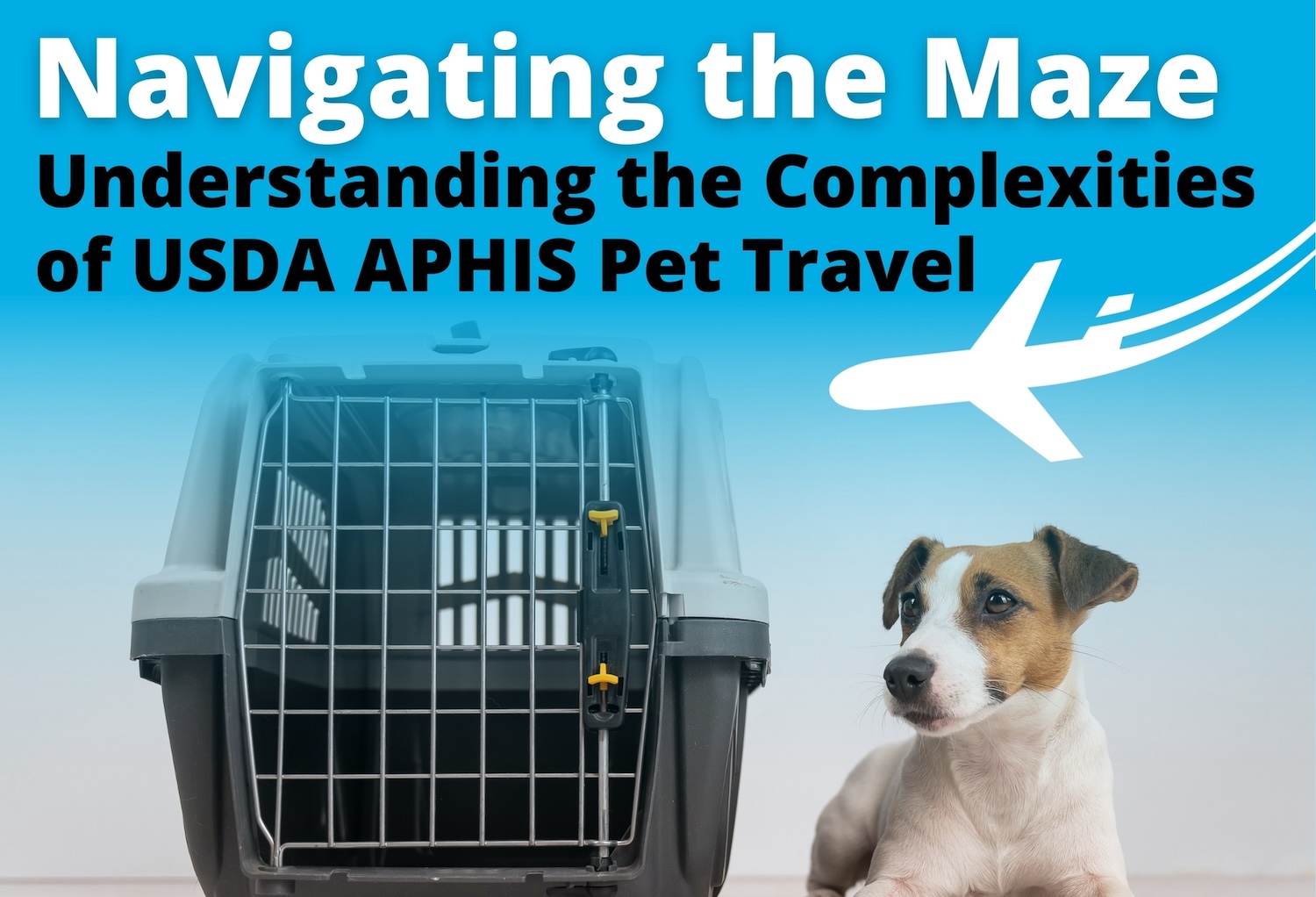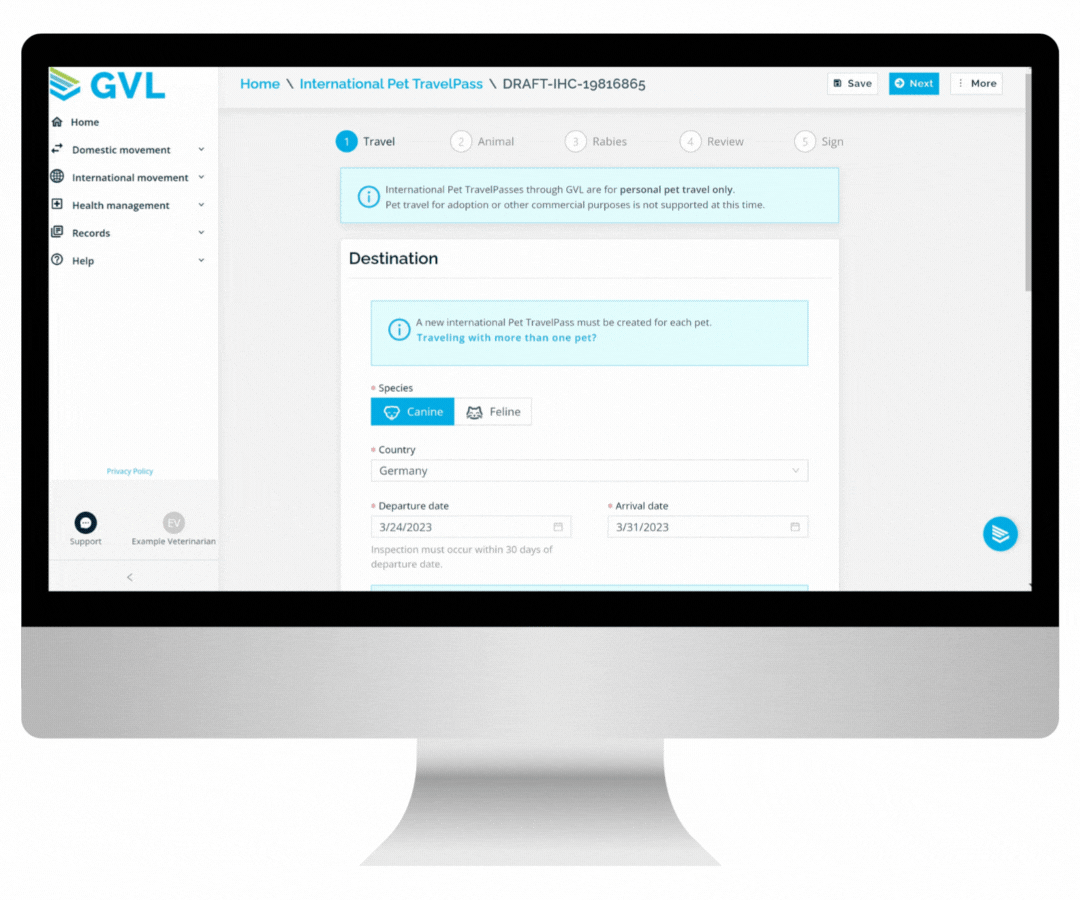Navigating the Maze
Understanding the Complexities of USDA APHIS Pet Travel
For veterinarians, ensuring the health and well-being of our four-legged companions is second nature. Yet, when it comes to understanding USDA Animal and Plant Health Inspection Service (APHIS) pet travel regulations, the journey is often riddled with complexities that can be both time-consuming and challenging to navigate. In this blog, we delve into the intricate process involved in USDA APHIS pet travel and shed light on the complications veterinarians face in ensuring compliance.
The USDA APHIS Pet Travel Blueprint: Unraveling the Steps
USDA APHIS regulations are designed to safeguard the health of animals during travel and prevent the spread of diseases. The process involves several key steps that veterinarians must diligently follow:
- Identification and Microchipping: Pets must be accurately identified through a microchip, ensuring that their health records can be linked to the correct individual.
- Vaccinations and Tests: Depending on the destination, specific vaccinations and tests may be required. These vary widely and can include rabies vaccinations, blood tests, and parasite treatments.
- Health Certificates: A crucial component of pet travel compliance, health certificates must be issued by an accredited veterinarian within a specified timeframe before travel. These certificates attest to the overall health and fitness of the animal.
- Endorsement by USDA APHIS: For travel to an international destination, the completed health certificate must be submitted to USDA APHIS for endorsement, adding an additional layer of approval to the process.
- Travel Documentation: Beyond the health certificate, other travel documents may be necessary, such as import permits or specific documentation required by the destination state or country.
A Modern Approach: Streamlining USDA APHIS Pet Travel Compliance
Despite the importance of adhering to USDA APHIS regulations, the process is not without its challenges for veterinarians:
- Ever-Changing Regulations: USDA APHIS regulations are subject to change, and staying abreast of these changes can be a daunting task. Veterinarians must invest time in continuous education to ensure they are aware of the latest requirements.
- Complex Destination-Specific Rules: Different destinations have different rules, and understanding the unique requirements of each country can be overwhelming. This complexity often leads to potential oversights and mistakes in the compliance process.
- Manual Administrative Burden: The entire compliance process is laden with manual administrative tasks, from paperwork to data entry. This not only consumes valuable time but also increases the likelihood of errors that can result in travel delays or, worse, non-compliance.
- Time Sensitivity: Many requirements, such as health certificates, have specific validity periods. Navigating the timing of vaccinations, tests, and certificate issuance within these windows adds extra pressure to veterinarians.
Complications in the Compliance Process: A Veterinarian's Dilemma
In the face of these challenges, there is a growing need for innovative solutions that can streamline the USDA APHIS pet travel compliance process. Digital platforms, such as GlobalVetLink, offer a promising avenue for alleviating the manual burden and enhancing efficiency in managing pet travel requirements. By automating administrative tasks, providing real-time updates on regulatory changes, and offering a centralized platform for documentation, GlobalVetLink empowers veterinarians and simplifies the compliance journey.
Clinics using GlobalVetLink are benefitting from a revolutionized USDA APHIS pet travel compliance process, allowing their veterinarians and staff to focus on what they do best – providing exceptional care for our beloved animal companions.

